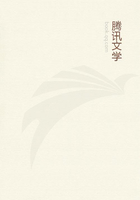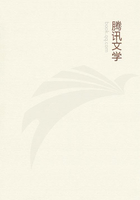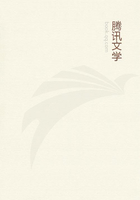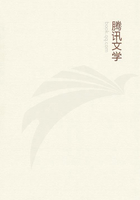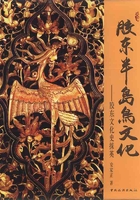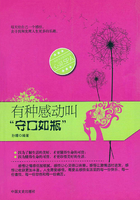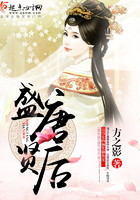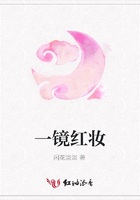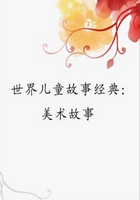I think at the same time of my son, the officer at Warsaw. He is a clever, honest, and sober fellow. But that is not enough for me. I think if I had an old father, and if I knew there were moments when he was put to shame by his poverty, I should give up my officer's commission to somebody else, and should go out to earn my living as a workman. Such thoughts about my children poison me. What is the use of them? It is only a narrow-minded or embittered man who can harbour evil thoughts about ordinary people because they are not heroes. But enough of that!
At a quarter to ten I have to go and give a lecture to my dear boys. I dress and walk along the road which I have known for thirty years, and which has its history for me. Here is the big grey house with the chemist's shop; at this point there used to stand a little house, and in it was a beershop; in that beershop I thought out my thesis and wrote my first love-letter to Varya.
I wrote it in pencil, on a page headed "Historia morbi." Here there is a grocer's shop; at one time it was kept by a little Jew, who sold me cigarettes on credit; then by a fat peasant woman, who liked the students because "every one of them has a mother"; now there is a red-haired shopkeeper sitting in it, a very stolid man who drinks tea from a copper teapot. And here are the gloomy gates of the University, which have long needed doing up; I see the bored porter in his sheep-skin, the broom, the drifts of snow. . . . On a boy coming fresh from the provinces and imagining that the temple of science must really be a temple, such gates cannot make a healthy impression. Altogether the dilapidated condition of the University buildings, the gloominess of the corridors, the griminess of the walls, the lack of light, the dejected aspect of the steps, the hat-stands and the benches, take a prominent position among predisposing causes in the history of Russian pessimism. . . . Here is our garden . . . I fancy it has grown neither better nor worse since I was a student. I don't like it. It would be far more sensible if there were tall pines and fine oaks growing here instead of sickly-looking lime-trees, yellow acacias, and skimpy pollard lilacs. The student whose state of mind is in the majority of cases created by his surroundings, ought in the place where he is studying to see facing him at every turn nothing but what is lofty, strong and elegant. . . . God preserve him from gaunt trees, broken windows, grey walls, and doors covered with torn American leather!
When I go to my own entrance the door is flung wide open, and I am met by my colleague, contemporary, and namesake, the porter Nikolay. As he lets me in he clears his throat and says:
"A frost, your Excellency!"
Or, if my great-coat is wet:
"Rain, your Excellency!"
Then he runs on ahead of me and opens all the doors on my way. In my study he carefully takes off my fur coat, and while doing so manages to tell me some bit of University news. Thanks to the close intimacy existing between all the University porters and beadles, he knows everything that goes on in the four faculties, in the office, in the rector's private room, in the library. What does he not know? When in an evil day a rector or dean, for instance, retires, I hear him in conversation with the young porters mention the candidates for the post, explain that such a one would not be confirmed by the minister, that another would himself refuse to accept it, then drop into fantastic details concerning mysterious papers received in the office, secret conversations alleged to have taken place between the minister and the trustee, and so on. With the exception of these details, he almost always turns out to be right. His estimates of the candidates, though original, are very correct, too. If one wants to know in what year some one read his thesis, entered the service, retired, or died, then summon to your assistance the vast memory of that soldier, and he will not only tell you the year, the month and the day, but will furnish you also with the details that accompanied this or that event. Only one who loves can remember like that.
He is the guardian of the University traditions. From the porters who were his predecessors he has inherited many legends of University life, has added to that wealth much of his own gained during his time of service, and if you care to hear he will tell you many long and intimate stories. He can tell one about extraordinary sages who knew _everything_, about remarkable students who did not sleep for weeks, about numerous martyrs and victims of science; with him good triumphs over evil, the weak always vanquishes the strong, the wise man the fool, the humble the proud, the young the old. There is no need to take all these fables and legends for sterling coin; but filter them, and you will have left what is wanted: our fine traditions and the names of real heroes, recognized as such by all.
In our society the knowledge of the learned world consists of anecdotes of the extraordinary absentmindedness of certain old professors, and two or three witticisms variously ascribed to Gruber, to me, and to Babukin. For the educated public that is not much. If it loved science, learned men, and students, as Nikolay does, its literature would long ago have contained whole epics, records of sayings and doings such as, unfortunately, it cannot boast of now.
After telling me a piece of news, Nikolay assumes a severe expression, and conversation about business begins. If any outsider could at such times overhear Nikolay's free use of our terminology, he might perhaps imagine that he was a learned man disguised as a soldier. And, by the way, the rumours of the erudition of the University porters are greatly exaggerated. It is true that Nikolay knows more than a hundred Latin words, knows how to put the skeleton together, sometimes prepares the apparatus and amuses the students by some long, learned quotation, but the by no means complicated theory of the circulation of the blood, for instance, is as much a mystery to him now as it was twenty years ago.

